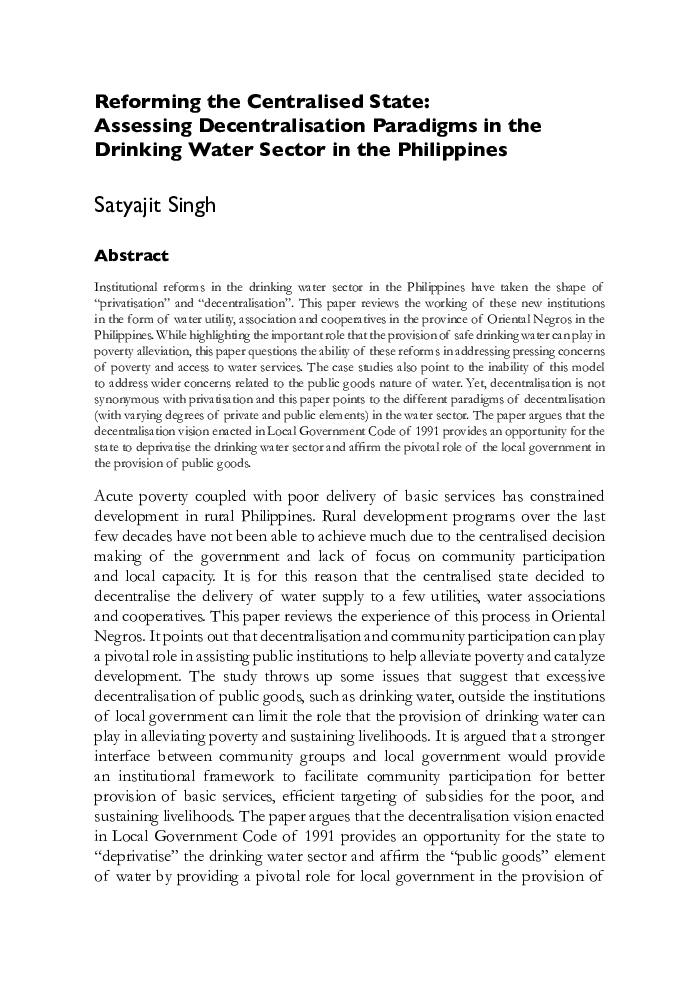| Article ID | Journal | Published Year | Pages | File Type |
|---|---|---|---|---|
| 1061784 | Policy and Society | 2007 | 20 Pages |
Institutional reforms in the drinking water sector in the Philippines have taken the shape of “privatisation” and “decentralisation”. This paper reviews the working of these new institutions in the form of water utility, association and cooperatives in the province of Oriental Negros in the Philippines. While highlighting the important role that the provision of safe drinking water can play in poverty alleviation, this paper questions the ability of these reforms in addressing pressing concerns of poverty and access to water services. The case studies also point to the inability of this model to address wider concerns related to the public goods nature of water. Yet, decentralisation is not synonymous with privatisation and this paper points to the different paradigms of decentralisation (with varying degrees of private and public elements) in the water sector. The paper argues that the decentralisation vision enacted in Local Government Code of 1991 provides an opportunity for the state to deprivatise the drinking water sector and affirm the pivotal role of the local government in the provision of public goods.
